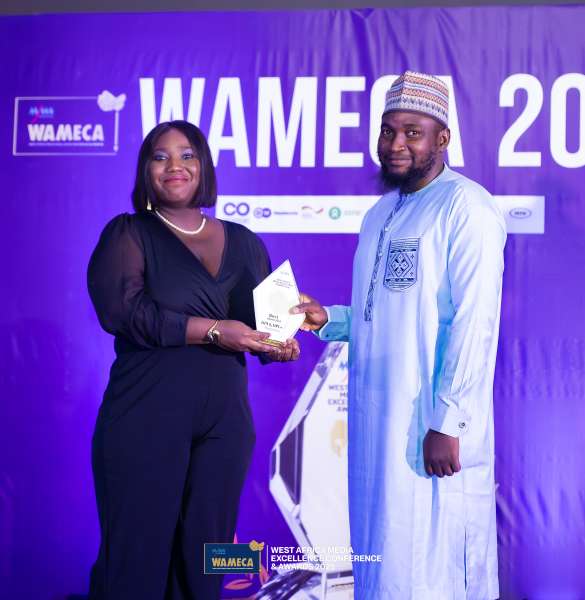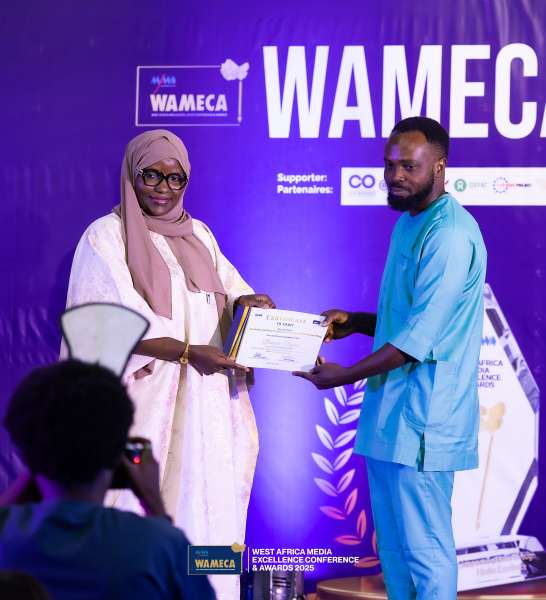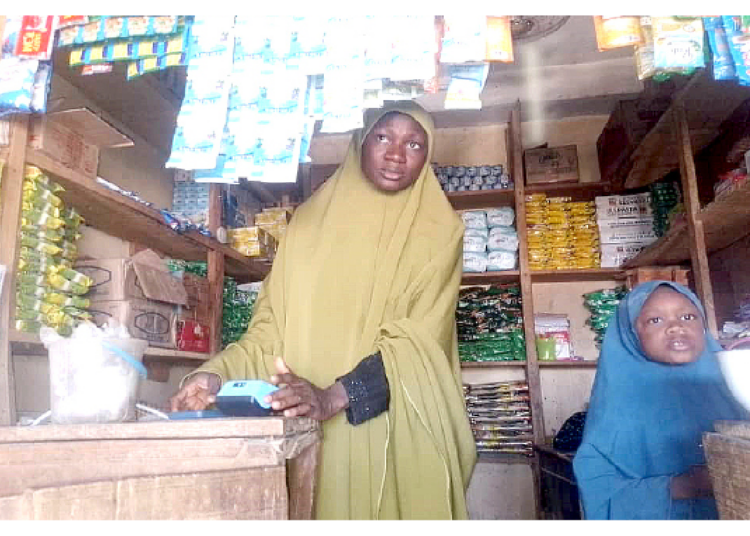Two Nigerian journalists from the Media Foundation for West Africa’s (MFWA) Digital Public Infrastructure (DPI) Journalism Fellowship have won awards at the 2025 West Africa Media Excellence Conference and Awards (WAMECA). Faruk Umar Shuaibu of Daily Trust and Bakare Majeed of Premium Times were both recognised for outstanding stories produced during their Fellowship fieldwork.
Faruk’s winning story is “Why Nigerians Ditched eNaira.” With it, he unpacks how limited inclusivity and weak communication hindered Nigeria’s digital currency rollout.

In the presentation of the story, deliberate use of extensive humanisation is unmistakable, with the writer staying out of the way and ceding the story’s flow to experts and people with lived experiences in connection to the eNaira rollout.
Catherine Gicheru (Kenya), a member of the WAMECA 2025 Grand Jury, praised the piece, saying:
“’Why Nigerians Ditched eNaira’ exposed how Nigeria’s bold experiment with digital currency stumbled. Through sharp reporting and human stories, it revealed the disconnect between innovation and reality, showing how poor communication, technical failures, and lost confidence turned a national milestone into a cautionary tale. It’s more than a technology story; it’s about trust, governance, and inclusion. True digital transformation isn’t about apps or platforms – it’s about people.”
Bakare Majeed, on his part, won the Inclusive Instant Payment Systems (IIPS) Reporting award, a new category introduced in the 2025 edition of WAMECA, with his story “From 3-Day Wait to Per-Second Transaction: How Bank Transfers Work.”

With this story, Majeed explains how the Nigeria Inter-Bank Settlement System (NIBSS) Instant Payment (NIP) service has transformed financial transactions in Nigeria, making money transfers faster, safer, and more convenient. He applies the human-centred storytelling technique taught in the DPI Fellowship to connect technology to lived experiences.
He begins with the real-life account of a man who, in 1995, waited three months for a stolen bank draft to be flagged. He contrasts that experience with today’s system, where billions of Naira move instantly through the NIP platform, demonstrating how robust digital public infrastructure has improved efficiency and public trust.
The two winning stories, produced under the 2025 DPI Journalism Fellowship, add on to impactful and award-winning stories that our DPI Fellowships have spawned over the years.
About the DPI Journalism Fellowship
The Digital Public Infrastructure (DPI) Journalism Fellowship is a flagship initiative of the Media Foundation for West Africa (MFWA), implemented in partnership with and with funding support from Co-Develop.
The Fellowship trains journalists across West Africa to understand, investigate, and report on the region’s digital public infrastructure transformation. Fellows learn to produce evidence-based stories that raise public awareness, drive accountability, promote inclusivity, and encourage active participation in digital innovations.
Since its inception in 2023, the DPI Journalism Fellowship has trained 65 journalists from 10 West African countries. Collectively, the DPI Fellows have produced over 370 stories on issues of digital IDs, digital payment systems, data exchanges and other digital transformative processes.
Through the Fellowship, MFWA and its partners are nurturing journalists who contribute to ensuring that digital progress benefits everyone and advances good governance across the region.






